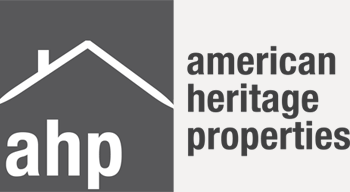Financial Considerations When Moving as a Senior
Deciding to sell your home and move into a new place of residence requires careful financial consideration. You’ll need to determine at what price to sell your house, where you should move, and more. Being well prepared gives you assurance that you’re making the smartest decisions for your personal financial situation and future financial goals.
Getting Top Dollar for Your Home
When you’re ready to sell your home, you want to make sure you get top dollar. While setting the asking price for what your home is worth may seem like the obvious thing to do, realtors often suggest shaving 15 to 20 percent off what your house is worth. Doing this will ensure you receive multiple bids, even in the worst markets, which will drive the final selling price over what it’s worth. It seems risky, but HGTV claims, “…it’s the single best strategy to sell a home in today’s market.”
When staging your home, leave your closets, cabinets, and pantry half empty to give the appearance of more storage space. Having ample lighting will also attract buyers. Leave curtains and blinds open, clean the windows, and increase the wattage of your light bulbs. Quick fixes are sure to help your home sale. Apply a fresh coat of paint, replace door handles and cabinetry hardware, and make sure your front door makes a statement.
Lastly, remove the personal touches. The less they see of you, the more they can see themselves living in the house. A good rule of thumb is to move a third of your stuff into storage. This includes family photos, trinkets, memorabilia, and other personal keepsakes. Since you’ll need to place all of your stuff into moving boxes when you make the move anyway, think of it as getting a head start.
Tax Ramifications
Selling a home can result in paying capital gains taxes if you make a profit, and the sale proceeds aren’t used to buy another home. However, it’s possible to exclude all or part of the gain. For example, if the home was your primary place of residence, and you lived in the home for at least two of the five years prior to the date of sale, you can exclude up to $250,000 if you’re single or up to $500,000 if you’re married filing joint and both qualify. The excess amount beyond the exclusion will then be taxed at capital gains rates.
You may still be able to exclude some of the profits if you meet other conditions, such as a change of employment or moving for health reasons. To find out whether you qualify for one of the exceptions, view the “Excluding The Gain: Reduced Maximum Exclusion” section in IRS Pub 523. Before listing your home, contact a tax specialist or professional financial advisor to determine how the sale will affect your finances and to see if you qualify for any exceptions.
Housing Costs
The cost of your home will vary widely based on where you choose to live and the size and type of your residence. In general, the difference between the types of housing will remain the same, so take Florida for an example. Obviously the rates vary by county, but on average a house in Florida costs $200,000, which puts the mortgage around $950. The pricing of the homes in retirement communities, also called 55-and-over communities, is generally comparable to standard houses in the area.
A two-bedroom apartment in Florida averages in at $1,587 per month. The average cost of an independent living facility in Florida is $2,545 per month. As you can see, these options are more expensive than purchasing a home, but they have their perks. Apartments and assisted living facilities come with little to no maintenance, plenty of amenities, and typically include utilities. Some independent and assisted living communities also include food and transportation in their cost, not to mention on-site medical assistance.
As you can see, the decision to sell your home and move into a new place of residence comes with a lot of important financial decisions. Working with a realtor and a financial advisor will help to ensure you make decisions that best fit your unique situation. While cost is definitely important, finding somewhere you can comfortably live and enjoy life is the ultimate goal.
Here are some resources that may be helpful:
- get t op dollar – http://www.hgtv.com/design/decorating/design-101/10-best-kept-secrets-for-selling-your-home
- stuff into storage. – https://www.closetbox.com/locations/los-angeles/
- capital gains taxes – http://www.aarp.org/money/taxes/info-05-2010/faq_sale_of_home.html
- IRS Pub 523. – https://www.irs.gov/publications/p523/
- Florida – https://smartasset.com/mortgage/the-cost-of-living-in-florida
- average cost – https://www.seniorhomes.com/s/florida/independent-living/
Courtesy of Michael Longsdon from elderfreedom.net









